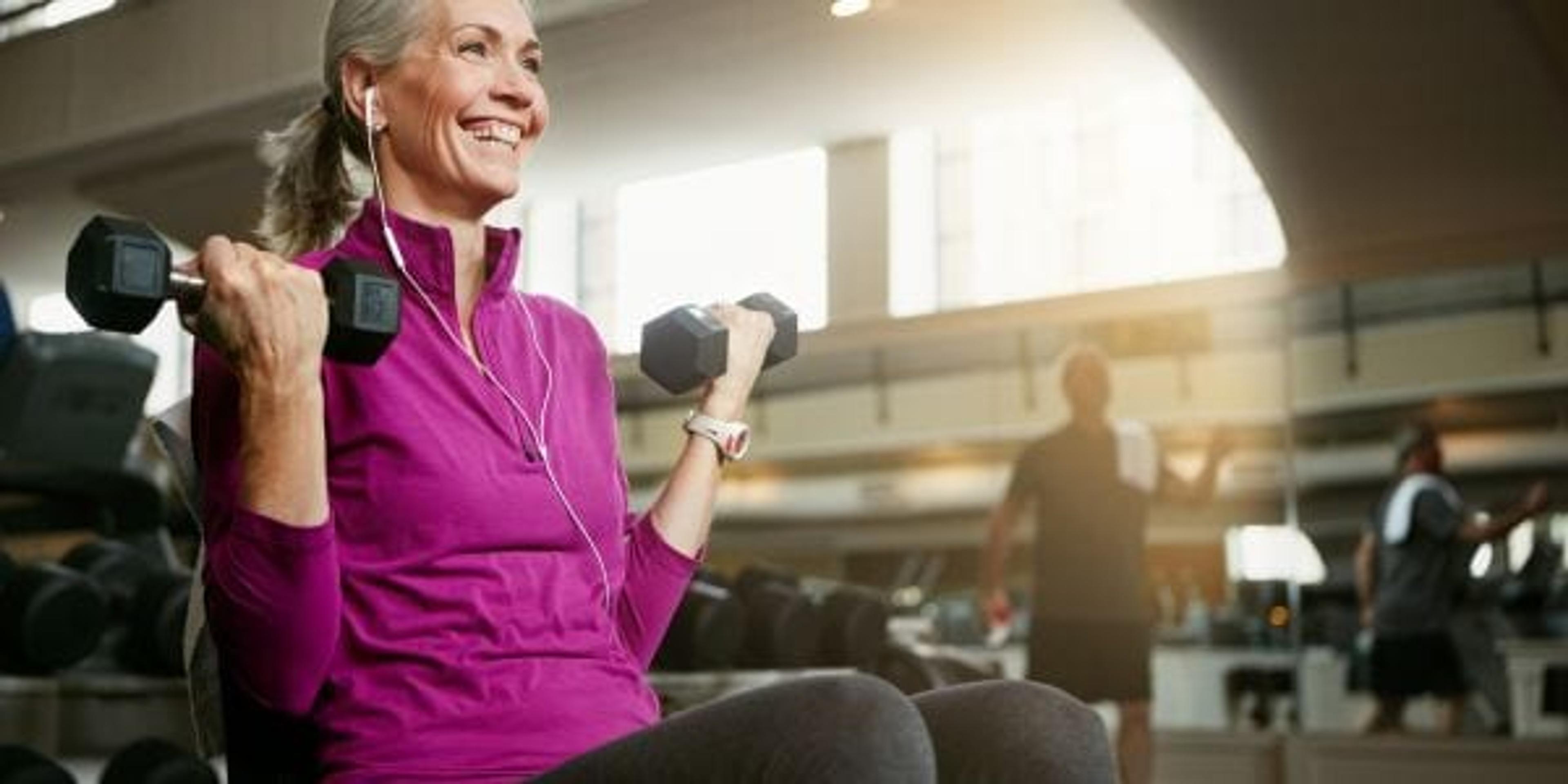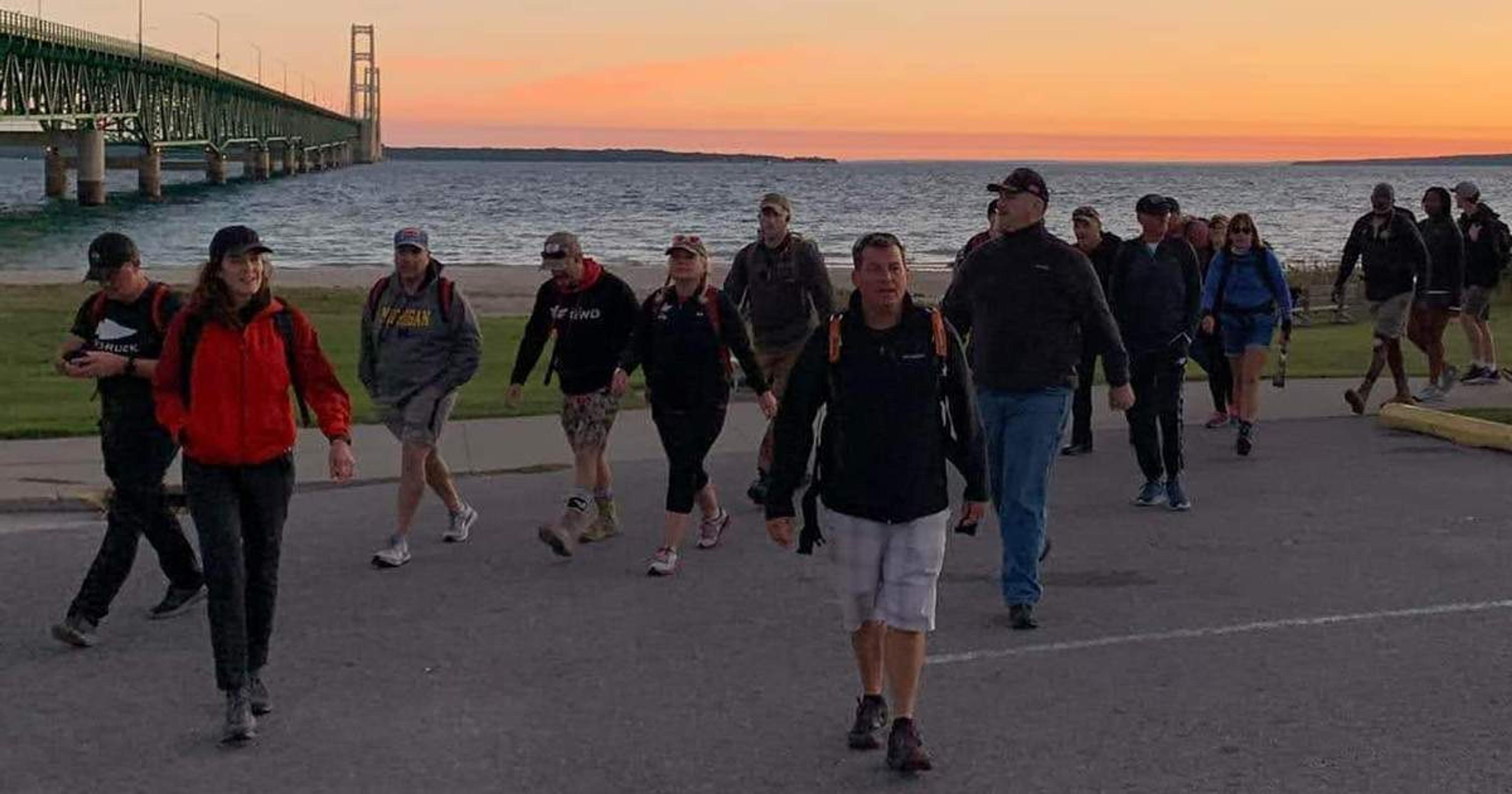Get Fit in Your 40s, 50s, 60s and Beyond

Laura Ortiz
| 5 min read

I’m 57. There, I said it. As much as I’d like to deny it, my body isn’t letting me lie. Acceptance isn’t easy, especially considering I was diligent about fitness in my 20s and 30s and have taken fairly good care of myself, at least in spurts, up to this point. Still, my body parts are shifting – and it ain’t pretty.
I know aging is responsible for some of my physical changes. That at least allows me to stop being mad for not looking like my younger self. It also helps me think more in terms of overall well-being so I can enjoy the decades ahead.
Here’s the not-so-skinny
The American Council on Exercise reports a decrease in metabolism of 1 to 2 percent every decade for women and 5 to 8 percent for men. That means, we don’t burn calories as fast as we did years ago and need to eat less to maintain a healthy weight. We should also exercise if we don’t want to be dragging our sagging body parts around.
Fitness experts and medical professionals have a lot to say about how bodies change through the decades and what we can do to lessen the blow. If you’ve been a couch potato up to this point, or have health issues, don’t go full throttle. You’ll burn out quickly and probably hurt yourself. Talk to your doctor first.
In your 40s
Gravity isn’t winning yet, but the shift has begun. Hormones for women are starting a pre-menopausal frenzy, triggering the start of an emotional and physical rollercoaster ride. The metabolism for both sexes is starting to slow, turning lean muscle mass into fat.
Exercise recommendations:
- Strength train your entire body, one hour a day, three days a week (or four days for half an hour if you split it up). Build muscle with resistance bands, free weights and body resistance exercises such as sit-ups, squats and lunges.
- Cardio workout, 45 minutes a day five days a week. Take a brisk walk, dance, run on a treadmill, ride a bike, jump rope – anything that gets the heart pumping.
In your 50s
The average woman will gain 12 pounds eight years after menopause, according to a University of Pittsburgh study of 541 women in midlife. And, much of it settles right in the belly. Oh, joy.
Dr. Pamela Peeke, M.D., and author of Body for Life for Women, calls this the menopot for women and the manopot for men. While men don’t have a well-defined period of hormonal changes, doctors say, they do experience a decline in testosterone as they age, which can cause similar weight issues, among other things better left for another article. Diet and exercise can stave it off for both men and women. But, Peeke and other fitness gurus say, this is the decade to take it slow and steady and make sure to stretch before and after every workout.
Exercise recommendations:
- Four to six cardio sessions a week, 20 to 40 minutes each
- Half an hour of weight training twice a week, eight to 12 repetitions of each exercise, or 15 to 20 using lighter weights
- Work on your balance with yoga, tai chi or dance
- Always stretch after a workout to keep the muscles from tightening up
In your 60s
Welcome to the decade of bad knees, arthritis, spinal stenosis and a long list of other aches and pains. The bad news, some is your own fault. The good news, you can do something about it. Marilyn Moffat, PhD, a professor of physical therapy at New York University and coauthor of Age-Defying Fitness says, your physical woes aren’t totally a consequence of hormonal and other age-related changes. Some is caused by lack of use and bad diet. Her advice: Start moving but be realistic about your limitations.
Exercise recommendations:
- Cardio workout, three days a week – Do low-impact exercises such as water aerobics (to protect the joints) or ride a stationary bicycle.
- Weight train – Use light weights and practice slow, controlled movements.
- Work on your balance with tai chi or resistance bands.
- Stretch, stretch and stretch some more to maintain your flexibility.
70s and beyond
The MacArthur Foundation Research Network on an Aging Society reported that people in their 70s and 80s could become more physically fit, even if they had never exercised before. It won’t prevent unpredictable illnesses, but it can improve quality of life.
Exercise recommendations:
Because we all age differently, there are no fitness guidelines.
The National Council on Aging and the American Association of Retired Persons share this advice: Keep moving every day — dance, climb stairs, garden, swim, play with the grandkids. Work out within your limitations and focus on balance for fall prevention, strength to keep muscles active and cardiovascular fitness to maintain a healthy heart beat.
Want more content geared toward keeping yourself happy and healthy through mid-life? Subscribe to our Midlife Map series here:
Please leave this field empty Interested in more of this content? We'll send related updates right to your inbox. Email Address *
Enjoy your new subscription!
If you found this post helpful, you might also enjoy:
Photo credit: grady reese





